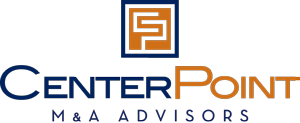Most business owners are reluctant to spend the time and money to conduct an annual financial audit unless there is some requirement to do so, such an audit requirement from their bank or lender. Very few of our clients (less than 20%) have audited financial statements, and we are able to successfully complete the sale of their companies.
That being said, the most common problem we face when trying to close a deal is that our client’s financial statements are not entirely accurate. Common issues we see are accounting deficiencies such as incorrect timing of revenue recognition, improperly matching cost to revenue, and inaccurate calculation of COGS. As you know from reading our previous blog [ The Basics of Middle Market Business Valuation ] companies are valued based on a multiple of EBITDA. If the buyer discovers in due diligence that the EBITDA of the seller is overstated due to inaccurate financial reporting, then the buyer will have justification to renegotiate the purchase price. So, although a full financial audit may not be necessary, sellers may want to consider a financial review process called a Quality-of-Earnings.
What is a Quality-of-Earnings
You may have heard the term Quality of Earnings (QoE) in the context of M&A transactions. A QoE is conducted by an accounting firm. It evaluates both the accuracy and the sustainability of a company’s earnings. The purpose of a QoE is to identify any material issues in the company’s accounting procedures and to highlight any issues or irregularities that may have an impact on the sustainability of future earnings.
A QoE is similar to a financial audit but differs in its primary purpose. The primary purpose of a financial audit is to determine if the company is reporting its financials in compliance with Generally Accepted Accounting Principles (GAAP) and if the historical reported earnings are accurate. A QoE also reviews the accuracy of the historical financial statements but goes a step further to analyze the “quality” of those earnings and if there are risks to the sustainability of those earnings in the future. An audit is backward looking and a QoE tends to be more forward looking.
Buyers Will Always Perform a Quality-of-Earnings
A QoE is the primary financial investigation that the buyer will perform in due diligence before closing a transaction. At the end of the QoE process the buyer will receive a report from the accounting firm which shows the calculation of adjusted EBITDA as well as identified factors that may affect the future sustainability of those earnings. Here are a few examples of items that may be identified in a buyer’s QoE report:
- The seller’s EBITDA increased 15% in the prior year period, but this increase was entirely due to price increases. Product sales volumes actually declined. The QoE will identify this as a risk citing that demand for the seller’s products is slowing, and EBITDA is at risk of declining in the future if additional price increases cannot be implemented.
- A minimum wage increase is scheduled to go into effect next year in the municipality in which the company operates. This will increase labor cost and is expected to reduce gross margins next year by 4%.
- The company received a large one-time order from one of its customers which had a material positive impact on revenue and EBITDA in the current fiscal year. This is a one-time piece of business and is not expected to recur next year.
These are just a few examples of the non-accounting type of items that would be included in a QoE but may not be identified in a traditional financial audit.
What is a “Sell-Side” Quality-of-Earnings
In order to be better prepared for a sale process, it has become more common for sellers to commission their own “sell-side” QoE . This allows the seller to identify any accounting deficiencies as well as issues that may create challenges when marketing the company for sale. Identifying and addressing these issues up front can have a positive impact on valuation and increase the certainty of closing. The benefits of a sell-side QoE are many, and in my view far outweigh the cost of the report:
- Minimize Surprises: By proactively addressing potential issues in the QoE report, the seller reduces the risk of a last-minute surprise that could jeopardize the deal or lead to price renegotiation.
- Smoother transaction process: A QoE report can help streamline the transaction process. It provides a structured framework for discussion between the seller and potential buyers, reducing the likelihood of misunderstandings or disputes.
- Increase Valuation: A thorough sell-side QoE can identify areas of improvement in the company’s financials, operations, and accounting practices. It will also identify management adjustments and non-recurring expenses for the purpose of increasing adjusted EBITDA. By addressing these items before going to market the seller can potentially increase the Company’s valuation and make it a more attractive acquisition.
- Enhanced Credibility: A professionally prepared QoE report by a reputable third-party firm can enhance the credibility of the seller’s financial statements and operations, making it easier for buyers to trust the information provided.
Conducting a sell-side QoE can significantly benefit a seller by improving the attractiveness of the business to a potential buyer, reducing transaction related risks, and enhancing the overall efficiency of the sale process. It is a proactive step that can lead to a smoother and more successful transaction. Quality-of-Earnings reports are not needed in all situations, but we have found ourselves recommending them more often due to the value they bring to a transaction.
Want to learn more about this subject, or anything else related to M&A? Give us a call or send me an email: SCOTT@CENTERPNT.COM. We would love to speak with you.

